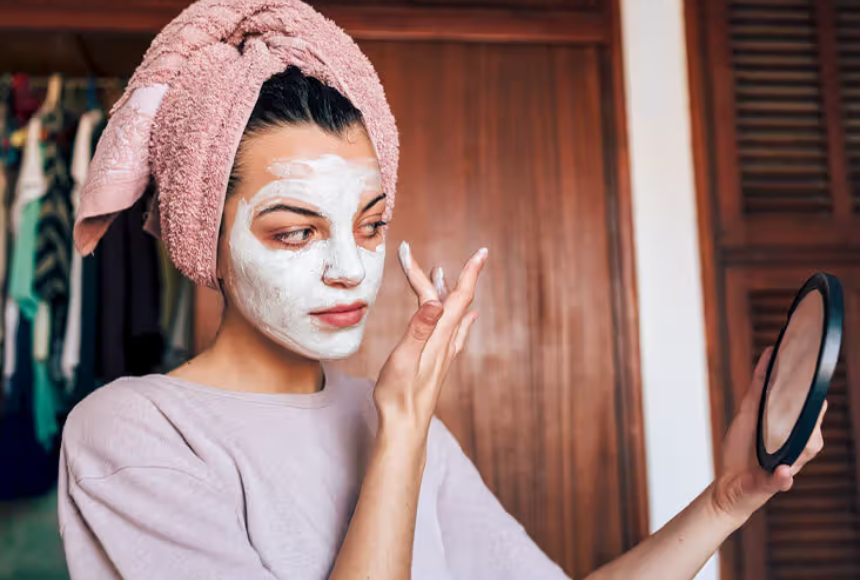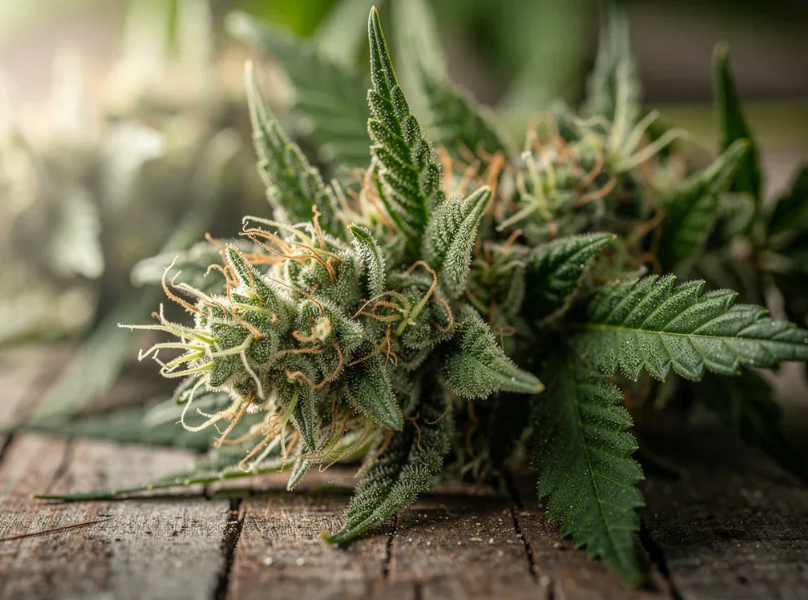Best Home Remedies for Acne You Need to Try Today
Combat acne with simple, natural home remedies that reduce breakouts and redness. Discover easy solutions using ingredients right from your kitchen.

Acne can be frustrating and often difficult to manage, affecting people of all ages and skin types. While many turn to commercial acne products, natural home remedies for acne offer effective, gentle solutions for those looking to avoid harsh chemicals. These home remedies help address acne’s common triggers like excess oil, bacteria, and inflammation and work to soothe and clear the skin.
Let’s dive into simple, science-backed remedies that use ingredients you may already have in your kitchen and that can help you achieve clearer skin without a trip to the store.
Understanding Acne and Its Triggers
Acne is a skin condition that occurs when oil, dead skin cells, and bacteria clog hair follicles, leading to whiteheads, blackheads, pimples, and sometimes cysts. Common causes include hormonal changes, diet, stress, and improper skincare routines. These factors can lead to an overproduction of sebum (natural skin oil) and clogged pores, which create an ideal environment for bacteria to grow and cause inflammation.
While there are many treatments available, natural remedies are a popular choice because they can soothe the skin without harsh side effects. Ingredients like honey, aloe vera, and green tea are packed with anti-inflammatory and antibacterial properties that help to reduce acne symptoms, leaving skin feeling calm and refreshed.
Top Home Remedies for Acne-Prone Skin
Honey and Cinnamon Mask
Honey is a natural antibacterial and has been used for centuries as a healing agent. When combined with cinnamon, which has anti-inflammatory properties, this duo can be an effective remedy for reducing acne-causing bacteria. Honey’s hydrating properties also prevent the skin from drying out, making it an ideal ingredient for all skin types.
To make the mask, mix one tablespoon of honey with half a teaspoon of cinnamon powder to form a paste. Apply it to clean skin, leaving it on for 10–15 minutes before rinsing with warm water. This mask not only helps clear acne but also leaves your skin feeling soft and hydrated.
Apple Cider Vinegar Toner
Apple cider vinegar is known for its natural acidity, which helps to balance the skin’s pH. It’s also a powerful antibacterial, able to kill acne-causing bacteria and prevent breakouts. When diluted with water, it acts as an effective toner that can control excess oil without over-drying the skin.
To use apple cider vinegar as a toner, dilute one part vinegar with three parts water. Apply it to your skin using a cotton ball, avoiding the eye area. Allow it to sit for a few minutes before rinsing with water, and follow up with a moisturizer. Use this treatment sparingly, as too much vinegar can irritate sensitive skin.
Tea Tree Oil Spot Treatment
Tea tree oil is a potent essential oil known for its antimicrobial and anti-inflammatory properties. It can effectively reduce redness and swelling associated with acne, making it a great option for spot treatment on active breakouts.
For use, mix one part tea tree oil with nine parts water to dilute its potency. Apply the mixture to affected areas using a cotton swab. Allow it to dry, then apply your moisturizer. Repeat this process once or twice daily as needed. Always patch-test essential oils on a small area of skin to ensure there is no sensitivity before applying them to the face.
Aloe Vera Gel for Soothing Relief
Aloe vera is celebrated for its ability to calm irritated skin. The gel from the aloe plant contains antioxidants, enzymes, vitamins A and C, and anti-inflammatory properties that help to reduce acne inflammation and promote healing.
To use, simply apply pure aloe vera gel directly to clean skin, focusing on inflamed or red areas. You can use aloe vera daily as part of your skincare routine. Its hydrating properties make it an excellent natural moisturizer that doesn’t clog pores.
Additional Remedies to Prevent Acne Flare-Ups
Green Tea Extract for Antioxidant Power
Green tea is rich in antioxidants, particularly catechins, which help combat inflammation and reduce excess sebum production. These antioxidants also fight bacteria, making green tea a gentle option for those with sensitive, acne-prone skin.
To use green tea as a topical treatment, steep a bag of green tea in hot water, let it cool, and apply the tea directly to your skin with a cotton ball. You can also find skincare products that incorporate green tea extract as an ingredient for ease of use.
Turmeric and Yogurt Mask for Brightening and Calming
Turmeric, with its anti-inflammatory and antibacterial properties, can reduce acne and brighten the skin, while yogurt is rich in probiotics that promote a balanced skin microbiome. The combination of these ingredients can help to reduce redness and acne scars.
To create a turmeric and yogurt mask, mix half a teaspoon of turmeric powder with one tablespoon of yogurt. Apply the mixture evenly to your face and leave it on for 10–15 minutes. Rinse with warm water. This mask is gentle enough to use once or twice a week and can leave your skin looking more radiant and even-toned over time.
Ice Therapy to Reduce Swelling
Ice is a simple yet effective remedy to quickly reduce swelling and redness from acne. The cold constricts blood vessels, reducing inflammation and numbing the skin, which can alleviate pain associated with active breakouts.
To use, wrap an ice cube in a soft cloth and press it gently against the inflamed area for about one minute. You can repeat this process several times a day, as needed, to soothe active breakouts. Just avoid applying ice directly to the skin, as this can cause damage.
Lifestyle Tips for Clearer Skin
Balanced Diet and Hydration
What you eat can significantly impact your skin’s health. Diets high in refined sugars and dairy have been linked to acne flare-ups, while foods rich in antioxidants, vitamins, and omega-3 fatty acids help nourish the skin from within. A diet that includes fruits, vegetables, whole grains, and lean proteins can reduce inflammation and support overall skin health. Hydration is equally essential, as drinking enough water helps to flush toxins from the body, keeping skin clear and vibrant.
Consistent Skincare Routine
A simple routine that includes cleansing, toning, and moisturizing can help keep your skin in balance. It’s also crucial to remove makeup thoroughly before bed, as makeup residue can clog pores and worsen acne. In addition, using gentle, non-comedogenic products ensures that your skincare routine works with your skin rather than against it.
Proper Hygiene
Acne can also be affected by daily habits, such as touching your face frequently or using dirty makeup brushes. Regularly cleaning your brushes, changing pillowcases, and keeping hands away from your face can prevent the transfer of bacteria that may cause acne.
Natural remedies for acne offer effective ways to address breakouts without relying on chemical treatments. From soothing aloe vera to bacteria-fighting tea tree oil, these home remedies can help you achieve clearer skin while keeping irritation at bay. Explore what works best for your unique skin type and stick to a routine that feels right for you.
For more skincare tips and natural acne treatments, follow Swingtechs for health and beauty insights tailored just for you.
Recent Blogs
-

Can You Build a Full Healthy Lifestyle Under $100?
-

When Does THCA Become Dangerous? A Must-Read Guide to Understanding the Risks
-

Delaying Your Child’s First Smartphone Might Be Smart — But Staying Connected Still Matters
-

How to Plan a Perfect Bridal Shower for Your Friend
-

Caraa Baby Bag Review: Convertible Tote for Stylish Parents